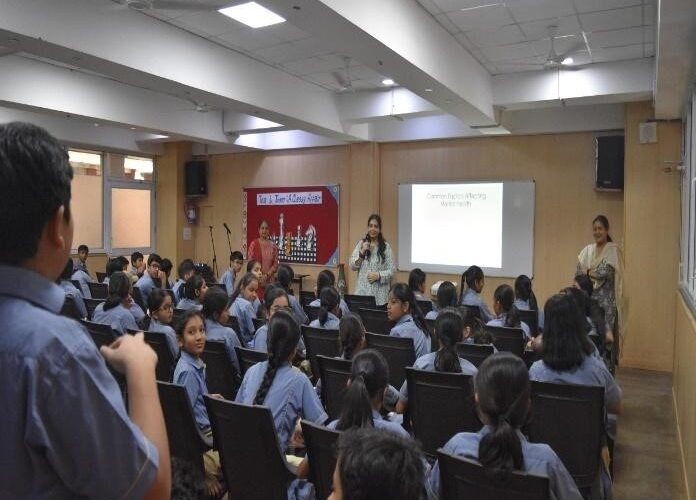MENTAL HEALTH AWARENESS

“You don’t have to control your thoughts. You just have to stop letting them control you”
Each May, the school observes Mental Health Awareness Month to raise awareness about the importance of mental health and wellness. Mental health awareness in schools is of paramount significance in fostering a supportive environment and ensuring the holistic well-being of students. Mental health encompasses our emotional and psychological well-being, shaping how we think, feel, and act. It affects how we handle stress, relate to others, and make decisions. While good mental health enables us to cope with life’s challenges and maintain healthy relationships, mental health disorders can disrupt these processes. Seeking support and understanding mental health as a spectrum is crucial for promoting well-being and reducing stigma.
Project CACA is a child-centric, preventive, and holistic project against child abuse in general, child sexual abuse in particular, child rights, and gender equality. The workshop provided a platform for students to delve into the intricacies of maintaining a healthy mind and emotional balance. Pratibha Malhotra, with her expertise, addressed the audience on various dimensions of mental health, emphasizing its significance in today’s fast-paced world. She began the session by highlighting the significance of mental health and discussing various myths and facts related to it.
The program took a holistic approach to mental well-being, focusing on stress management techniques. Mindfulness practices, including meditation and deep breathing exercises, were discussed in detail, along with practical tips for incorporating these practices into daily routines. Emphasis was placed on the importance of regular exercise and personalized self-care routines to empower students with effective stress management tools.
An extensive overview of common mental health conditions, such as anxiety, depression, and stress-related disorders, was presented, incorporating real-life examples to enhance relatability. Strategies for recognizing signs and symptoms, both in oneself and others, were shared, fostering a deeper understanding of mental health challenges.
The resource person encouraged students to seek help from the school counselor if facing mental health issues. The program aimed to destigmatize mental health by sharing stories of individuals overcoming challenges, promoting open conversations, and emphasizing the importance of treating mental health conditions as medical issues. Activities were conducted to help students introspect.
The question-answer session was highly interactive, covering topics such as mental detox, social media hygiene, leadership qualities, and tips for maintaining mental health or self-care.
Counselling Department




















Leave a Reply